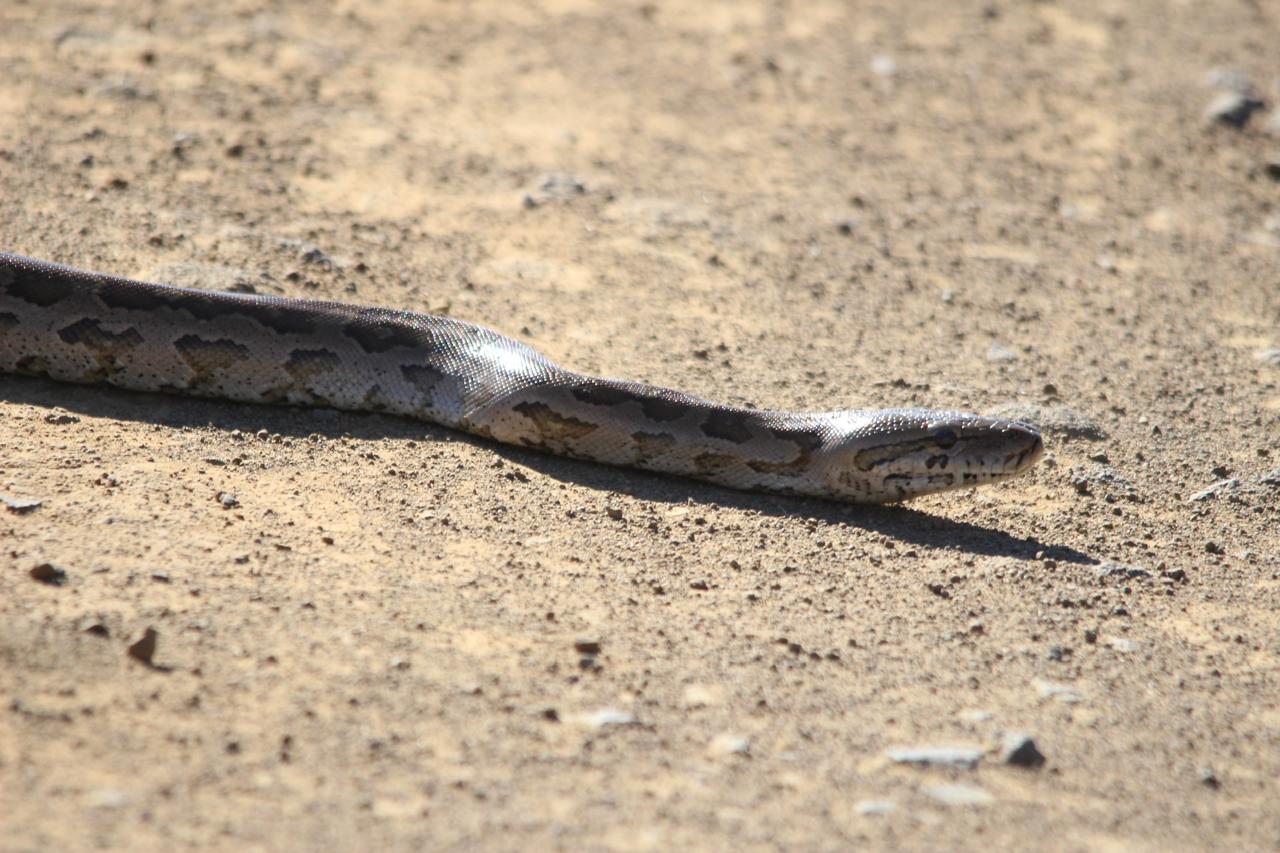Big, small, long, short, colourful, pale, venomous and non-venomous. These are just some of the characteristics that we use to describe the snakes of Zululand.

The Zululand region is home to some of Southern Africa’s most impressive and diverse snake species, with up to 83 different species occurring in this region. Forty four of these snakes are considered non-venomous, 8 can give painful but non-lethal bites and 11 are potentially deadly. The area’s habitat and climate is near perfect for most Zululand snakes. Add an abundance of food sources to the equation and it is no wonder that they thrive in this region.

Venomous Snakes of Zululand
Some of the venomous snakes of Zululand include: the Black and Green Mamba (Dendroaspis polylepis; - angusticeps); the Mozambique Spitting Cobra (Naja mossambicus) also commonly known as the Mfezi; the Boomslang (Dispholidus typus); and the Puff Adder (Bitis arietans).
There are three main types of venom; Neurotoxic, Hemotoxic and Cytotoxic. Neurotoxic venom attacks the nervous system and can lead to paralysis or death. The Black and Green Mamba possess this type of venom. Hemotoxic venom stops blood from clotting and can cause internal bleeding. The Boomslang and Vine snakes possess this type of venom. Cytotoxic venom destroys the cells and tissues within your body. The Puff Adder and Mozambique Spitting Cobra possess this type of venom.

Many of these snakes’ venom has an anti-venom available, and any and all bites need immediate medical attention. Snakes rarely attack people and most bites and/or serious incidents happen when the snake is cornered or threatened. The most common interactions happen by accident when people step, sit or lay on the snakes and their reaction is to defend themselves. Snakes will try to avoid most interactions.
Non-Venomous Snakes in Zululand
Some of the non-venomous snakes of Zululand include: the Brown House Snake (Boaedon capensis), the Spotted Bush Snake (Philothamnus semivariegatus) and the Eastern Natal Green Snake (Philothamnus natalensis natalensis). They are more commonly found around buildings and they prey on small lizards and frogs. This helps to keep the populations of these species in check.

Another non-venomous snake found in Zululand is the Southern African Python (Python natalensis). This is the largest snake in Zululand reaching measurements of up to 6m and a weight of around 65kg. Despite it being a protected species, the Python has been wiped out in many historical areas. They feed on numerous species of small mammals, and often prey on livestock, which contributes to their persecution.

Snakes and the Ecosystem
All snakes are unique and there is so much to appreciate about each species. Some live in trees, others under/between rocks and vegetation. Some use water or waterways and some even live underground. There are big snakes, long snakes, short and thin. Some are venomous, some are mildly venomous and others are harmless. They play an important role in the ecosystem and control the population of animals such as rats and mice. This helps to control the spread of various diseases.

Snakes have an important role to play and us humans should make an effort to understand them better. If you ever have the pleasure to come across one, take time to enjoy and understand these wonderful animals.
Text and photos by Wildlife ACT Priority Species Monitor, Wihan Pretorius


.jpg)
.png)





(1).avif)
.avif)